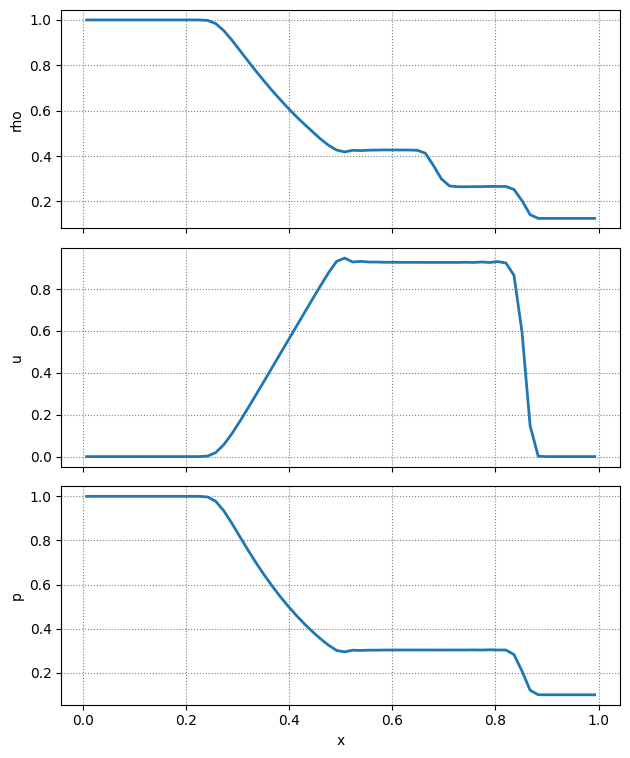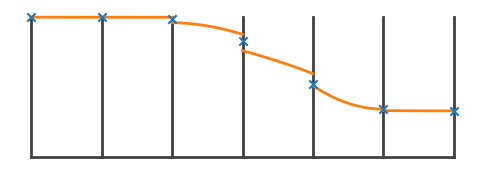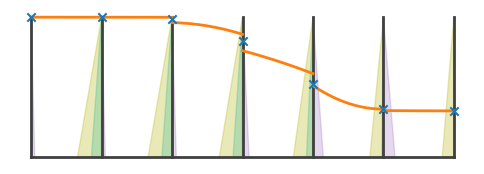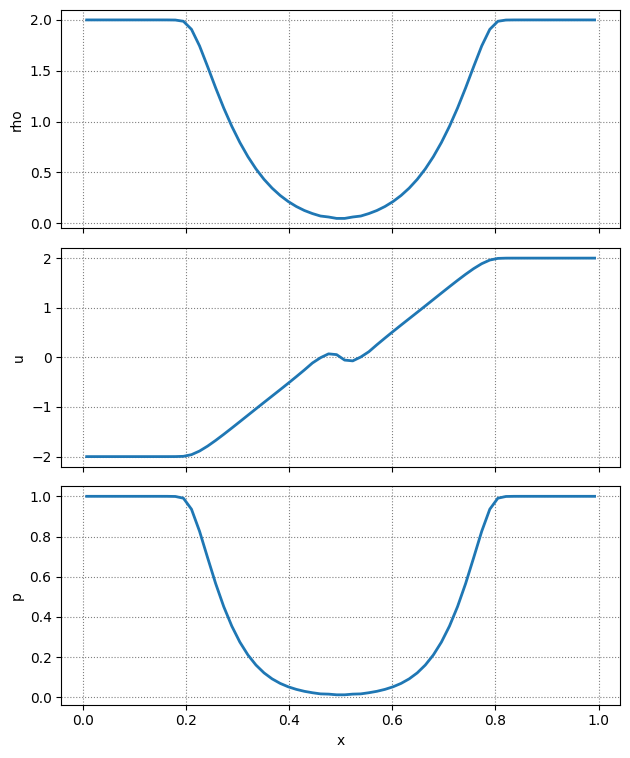Using the Euler solver#
ppmpy provides an Euler class that solves the Euler equations using PPM.
import numpy as np
import matplotlib.pyplot as plt
from ppmpy import Euler
Sod problem#
Here we do an example of the Euler solver running the standard Sod problem. The initial conditions
for this are provided by the ppmpy.initial_conditions module.
from ppmpy.initial_conditions import sod
We setup the Euler solver by telling it the number of zones, CFL number, and the initial condition function to use.
nx = 64
C = 0.5
e = Euler(nx, C, init_cond=sod)
We can then evolve–here we evolve for 0.2 s. We set verbose=False to suppress the output of the timestepping.
e.evolve(0.2, verbose=False)
Finally a plot.
fig = e.plot_prim()

We can also visualize the parabolia reconstruction. Here’s the pressure near the shock.
gp = e.grid.draw(lo_index=55, hi_index=60, stretch=2)
e.draw_prim(gp, e.v.qp)

We can also show to which interface each of the 3 characteristic waves moved in each cell by drawing their domain of dependence.
e.draw_waves(gp)
gp.fig

Custom initial conditions#
Let’s setup our own initial conditions for a general shock tube. We will want to be able to pass parameters to the initial condition function to set the left and right state–this is accomplished by setting the params keyword argument in the Euler class to a dictionary with the parameters.
The ratio of specific heats, \(\gamma\), is provided in params as well. If not explicitly set when params is passed it, and default value of \(1.4\) will be
used.
Here’s our new initial conditions:
def shock_tube(euler):
gamma = euler.params["gamma"]
rho_l = euler.params["rho_l"]
u_l = euler.params["u_l"]
p_l = euler.params["p_l"]
rho_r = euler.params["rho_r"]
u_r = euler.params["u_r"]
p_r = euler.params["p_r"]
idx_l = euler.grid.x < 0.5
idx_r = euler.grid.x >= 0.5
euler.U[idx_l, euler.v.urho] = rho_l
euler.U[idx_l, euler.v.umx] = rho_l * u_l
euler.U[idx_l, euler.v.uener] = p_l/(gamma - 1.0) + 0.5 * rho_l * u_l**2
euler.U[idx_r, euler.v.urho] = rho_r
euler.U[idx_r, euler.v.umx] = rho_r * u_r
euler.U[idx_r, euler.v.uener] = p_r/(gamma - 1.0) + 0.5 * rho_r * u_r**2
Let’s do a double rarefaction / vacuum problem
params = {"rho_l": 2.0, "u_l": -2.0, "p_l": 1.0,
"rho_r": 2.0, "u_r": 2.0, "p_r": 1.0}
e = Euler(nx, C, init_cond=shock_tube, params=params)
e.evolve(0.1, verbose=False)
fig = e.plot_prim()


